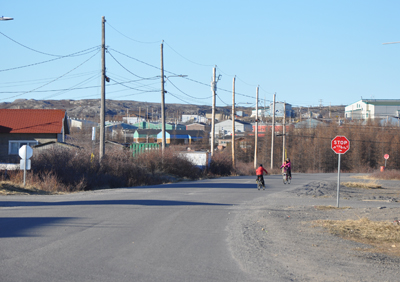MPs: Indigenous communities need robust care to address suicide
A parliamentary committee looking at the prevalence of suicide in Indigenous communities says more housing, after-hours support and aftercare would play a large role in addressing mental health crises across the North.
The Standing Committee on Indigenous and Northern Affairs spent the last year gathering input from more than 100 witnesses during 20 public hearings, which included roundtables in Kuujjuaq and Iqaluit.

The results of those efforts were published in a new report, “Breaking Point: The Suicide Crisis in Indigenous Communities,” which offered 28 recommendations on how to address the issue in First Nations, Métis and Inuit regions.
[Alaska university gets $4.25 million to address one of the state’s worst problems: Suicide]
Over the course of the study, participants from Inuit regions raised the social determinants of health—such as the North’s housing shortage, low educational attainment, poverty and unemployment—as major risk factors to suicide.
A social worker in Kuujjuaq suggested that between 50 percent to 60 percent of mental health problems would be solved by providing safe and adequate housing in the North.
Highlighting the need for evening and weekend care, especially in small communities, others who spoke pointed to the lack of aftercare for people in mental distress or those who survive suicide attempts.
Both housing and expanded health services require an investment on the part of the federal government, but participants stressed that change must be led by and for Indigenous communities.
George Hickes, Nunavut’s minister responsible for suicide prevention, told the committee that community-driven health services are the most effective means of fostering good mental health.
“We are past the days when we had no other options,” he told committee members. “Indigenous peoples need to be full partners in the design and delivery of programs and also have the time to develop the capacity to deliver such services.”
The report echoed those comments: “When [Indigenous] communities assume greater control over their economic, health, social, policing and educational services and have retained the use of Indigenous languages and related cultural infrastructure, they experience lower rates of suicide, overall.”
Among the report’s other recommendations relevant to Inuit Nunangat:
• expand the practice of enabling community members to intervene in times of crisis, as some communities in Nunavik and Nunavut already do;
• ensure mental health services are trauma-informed, which means recognizing past experiences that have caused an individual distress and respond to them in a way that the individual feels emotionally safe to disclose;
• provide more resources to communities to offer mental health services during the evening and weekend; and,
• co-ordinate discharge plans in Inuit communities so families can plan to intervene when a loved one is released from hospital or a treatment centre.
You can read the full report here.